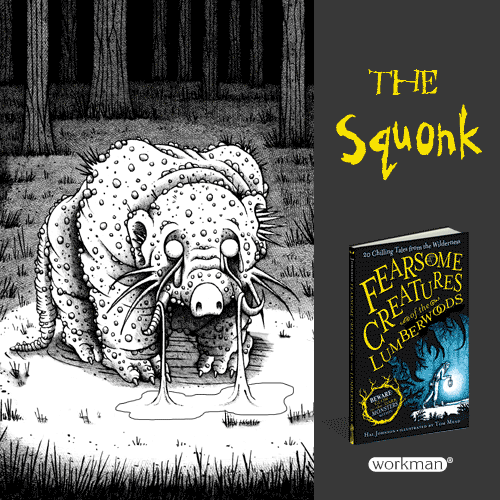Saturday 7.00pm 19 June 2021 at St Peter’s Anglican Church, 1038 Whitehorse Road, Box Hill. CONCERT IS POSTPONED TO A DATE TO BE DETERMINED. We apologise for any inconvenience.
Feature works: Year of the Dragon 2017 by Philip Sparke, Fearsome Critters by Laurence Bitensky, Do Not Go Gentle Into That Good Night by Elliot Del Borgo, Egmont Overture by Beethoven arr. Tobani (a belated celebration of his 250 anniversary, Soundtrack highlights from How To Train Your Dragon: The Hidden World and The Black Dog concert overture by Scott Cameron (an Aussie).
Year of the Dragon (2017) by Philip Sparke

For more information about Philip Sparke click here.
For more information about the work click here.
Fearsome Critters by Laurence Bitensky
We are performing four movements from this suite.
Based on descriptions in Fearsome Creatures of the Lumberwoods by William T. Cox (1910), Fearsome Critters by Henry H. Tyron (1939), and The Wampus Society (2011).

1. Introduction: Night; in the Woods – Out in the woods at night, in the frontier wilderness of North America, lumberjacks told stories of the fantastic and often deadly creatures that they had encountered. The result is a genre of American folklore called “fearsome critters.” Many of these creatures are now extinct, but some may still be encountered in the wild, so be wary. That strange sound you hear might the wind . . . . or it might be a snoligoster . . .
2. The Hodag (Deformis corniger lacrimans)
The ferocious Hodag has bulging eyes, a maniacal smile, a row of spikes down its back, the head of an ox, the body of a dinosaur, and a shovel-like nose. It feasts upon white bulldogs (but only on Sundays), and he hates when you laugh at him.
5. The Squonk (Lacrimacorpus dissolvens)
With its misfitting skin covered with warts and moles, the melancholy Squonk may be heard weeping under the boughs of dark hemlock trees on frosty moonlight nights.
9. The Whirling Whimpus meets the Cactus Cat
At sundown, the Whilrling Wimpus (Turbinocissus nebuloides) stands by a bend in the trail and whirls on its single hind hoof. Whirling so fast it becomes invisible, and all you can hear is a strange droning sound. Meanwhile, the Cactus Cat (Cactifelinus inebrius) greedily gets drunk on the sap of giant cacti and runs off howling into the night. Watch out cat! The Whimpus is about to turn you into syrup!
For more information click here.
Do Not Go Gentle Into That Good Night by Elliot Del Borgo

The Dylan Thomas poem Do Not Go Gentle Into That Good Night was the motivation for this musical composition. While not a programmatic depiction of the poem, the work attempts to recreate the essence of the poem in sound.
The opening motive, representative of the life force, permeates much of the work. An Ivesian use of sound layers — in the form of polytonal hymns — calls to mind the struggles and persistence of the human spirit and its refusal to “go gentle.”
- Program Note by Elliot Del Borgo
For more information click here.
Egmont Overture by Beethoven arr. Tobani

Egmont, Op. 84, by Ludwig van Beethoven, is a set of incidental music pieces for the 1787 play of the same name by Johann Wolfgang von Goethe. It consists of an overture followed by a sequence of nine pieces for soprano, male narrator and full symphony orchestra. Beethoven wrote it between October 1809 and June 1810, and it was premiered on 15 June 1810.
This is a belated celebration of his 250 anniversary.
For more information abut this work click here.
Soundtrack highlights from How To Train Your Dragon: The Hidden World

The third and final instalment of the popular How to Train Your Dragon movie franchise again features an outstanding score by John Powell. The Hidden World uses a hint of the familiar earlier themes along with bold and dramatic new material.
For more information and recording from the publisher click here.
The Black Dog concert overture by Scott Cameron
Composed for the Grainger Wind Symphony, The Black Dog is a concert overture built upon a theme from Scott Cameron’s score for the film, Hitchcock.
Expanded with new material it spins rapidly from one extreme to another, fragmenting partially before regathering to deliver a final forceful blow.
Winston Churchill once used the metaphor of the Black Dog to describe his own battle with depression, and while this overture does not so much seek to express the agony of such a condition it does aspire to express the dogged way in which it pursues its sufferers and insists itself upon them.
click here to go to Scott Cameron’s website
Come back closer to the date of the concert for booking details or follow our FaceBook page where the event will be posted.